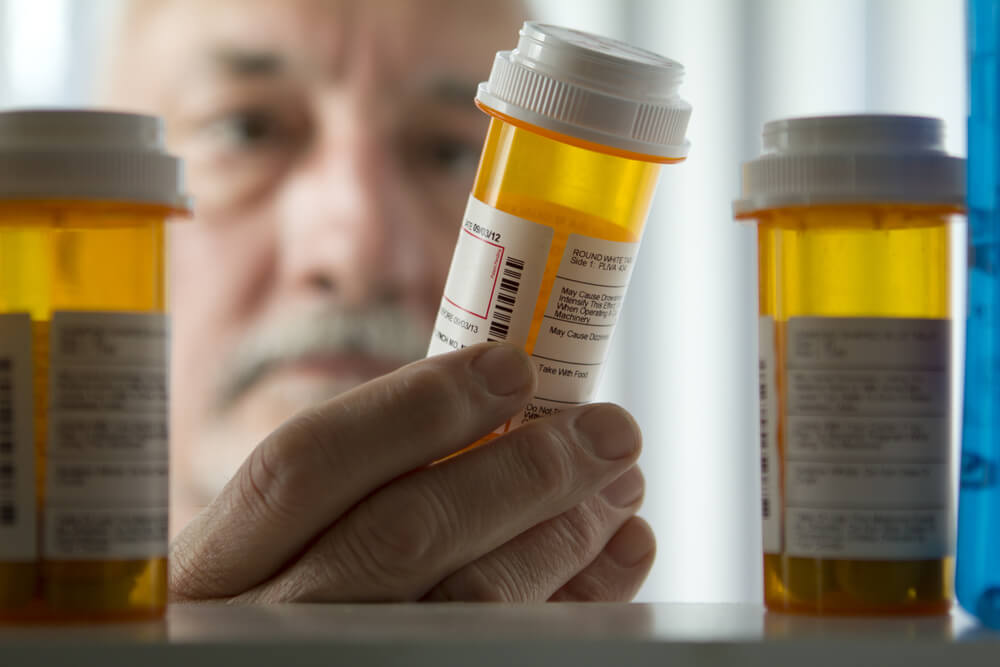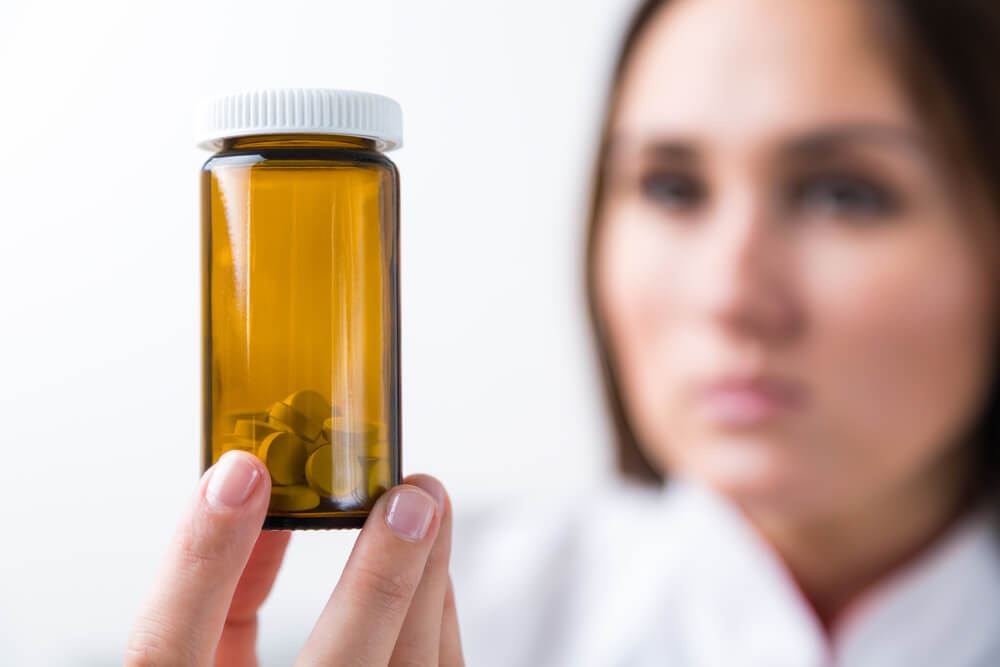This Is What Prescription Drug Addiction Looks Like

Signs and Symptoms of Prescription Drug Addiction
If you’re using prescription drugs to get high or using them in a way your doctor didn’t prescribe them, you may be living with prescription drug addiction. Read on to discover why prescription drug addiction happens and what you can do about it. Know that if you or a loved one is living with a substance use disorder, you’re not alone. There is hope.
Many Americans take their prescription drugs as intended by their doctor every day without issue. But prescription drug misuse is the nation’s second-highest form of drug use, following marijuana. Almost 20 million people used prescription drugs either without a prescription themselves or in larger amounts or ways outside the recommended use, according to a survey in 2015. Out of that group, the most commonly misused prescription drugs were painkillers, tranquilizers, stimulants, and sedatives. This is not surprising, given that all of the drug types listed are classified by the DEA as Schedule II drugs, meaning they have a high potential for abuse even though they’re considered therapeutic and therefore legal. A person can develop a substance use disorder, also called addiction, even if they’re using drugs prescribed to them by a doctor.
Because substance use disorder is a disease, there are some common signs that people experiencing this disorder will show, such as
- Taking a higher dose than prescribed
- Hostility or mood swings
- Sleeping more or less
- Making poor decisions
- Forging or stealing prescriptions
- Requesting early refills
- Continually “losing” prescriptions so more must be written
- Purchasing prescription drugs without a prescription for them
- Missing work or family obligations because of drug use
- Using their prescription in ways not intended by their doctor (snorting or injecting)
- Decreased personal hygiene
- Changes in personality and behavior
The symptoms of prescription drug addiction vary with the type of drug being used but can include the following
- Nausea
- Drowsiness
- Constipation
- Confusion
- Poor coordination
- Slurred speech
- Slowed breathing
- Irregular heartbeat
- Insomnia
- Anxiety
- Agitation
- Paranoia
Why Does Prescription Drug Addiction Happen?
Prescription drug addiction happens the same way an illicit drug addiction does, slowly and over time. Drugs that are addictive work by stimulating specific neurotransmitters in our brains. Neurotransmitters are chemical messengers that tell our brains and bodies what to do and how to feel. They control things like heart rate, breathing, thoughts, and memory. Drugs interfere with this cellular communication and provide a high euphoria. This process is still poorly understood but involves the system that regulates our positive motivation, also known as a reward. That’s why drugs are physically addictive, but what pushes a person to use them when they know it’s negatively impacting their life and family?
The answer to that is a complex combination of factors and events in a person’s life that result in the same thing, and that’s trauma. Trauma is defined as a lasting emotional response after living through a distressing event. Experiencing trauma can impact you on a level you may not even be aware of, affecting your ability to maintain personal relationships, regulate your emotions, and feel safe anywhere. Trauma can occur from a traumatic event like a violent assault, a car accident, or a chronic pattern of abuse or neglect. These events often traumatize children who experience neglect, poverty, housing instability, food insecurity, violence, and parental separation. Over 61% of adults surveyed had experienced at least one adverse childhood event in their lifetime. People with co-occurring disorders are at a much higher risk of developing an addiction.
Learn about Ed Sheeran’s substance abuse in our blog below:
Commonly Abused Prescription Drugs
The most commonly misused prescription drugs can be divided into three categories
Opioids
Opioids are extremely effective painkillers used to treat severe pain following surgery, injury, or terminal illness. They’re the synthetic derivative of morphine, a pain-relieving alkaloid that can be extracted from opium poppy seeds. Humans have been using opium for over 4,000 years for this purpose, with a prescription for it on an ancient Sumerian clay tablet dating to 2100 BC. Modern opioids are much more powerful than opium and are sold under brand names like Fentanyl, Hydrocodone, Demerol, and Oxycodone.
Anxiety Medications, Sedatives, and Hypnotics
Benzodiazepines were discovered in the 1950s and made available in 1960, and include Valium, Xanax, Klonopin, Ativan, and the illegal drug Rohypnol. They work as a depressant on the central nervous system, producing a calming feeling. Barbiturates were once commonly prescribed as a sedative to help with controlling seizures and pre-surgery anesthesia and include drugs like phenobarbital. There have been many celebrity deaths attributed to the misuse of barbiturates. Hypnotics are drugs that help you fall asleep, the most well-known of those being Ambien and the OTC drug Benadryl.
Stimulants
Stimulants are often prescribed to treat ADHD and narcolepsy and are sold under brand names like Adderall, Ritalin, and Dexedrine. Most stimulant-class prescription medications are derived from amphetamine and work on the central nervous system to increase alertness, attention, energy, and physical activity.

Addiction Treatment Programs for Prescription Drug Abuse
At Novo Detox we offer several programs for people who are dealing with prescription drug addiction. Once you’ve reached out to our 24/7 admissions team, you’ll begin the intake process, where our expert counselors, doctors, and case managers will meet with you to determine if you’ll need to undergo a supervised medical detox in our beautiful and comfortable Bel Air facility. They’ll also conduct assessments, testing, and interviews to determine which program suits your needs best as an individual. You might choose an inpatient rehabilitation program, where you can dedicate all of your time to healing. Or, if you have family or work obligations, you can’t pause to attend inpatient rehab you can choose from one of our outpatient programs that best suit your needs, scheduled around your commitments like work or school. Our therapies are evidence-based and trauma-informed.
Partner With Novo for Substance Abuse Treatment
There is no better time than right now to begin your path to recovery from prescription drug addiction. Our staff are highly educated in their respective fields and have years of experience treating substance use disorders. Focus on healing within our small, six-bed facility in the heart of Bel Air. Bright, open, and beautifully appointed we are proud to offer amenities like a private chef who prepares nutritious, organic, and healthful meals. Relax in our spacious and private yard’s outdoor lounge area by the pool. Recovering from addiction surrounded by comfort and kindness, our staff cares deeply about your well-being and success.
You are not alone in your battle with addiction, roughly 30 million Americans at any given time are also fighting a similar war against substance use disorders. We offer the highest standard of care and are accredited by the Joint Commission, California Department of Health Care Services, and SAMHSA, organizations devoted to patient safety and excellence in treating addiction. Novo Detox offers the best recovery treatment in all of Los Angeles, and you deserve the very best. Contact us at (844) 834-1777 today to start your path to sobriety for yourself and for the people who love you.




